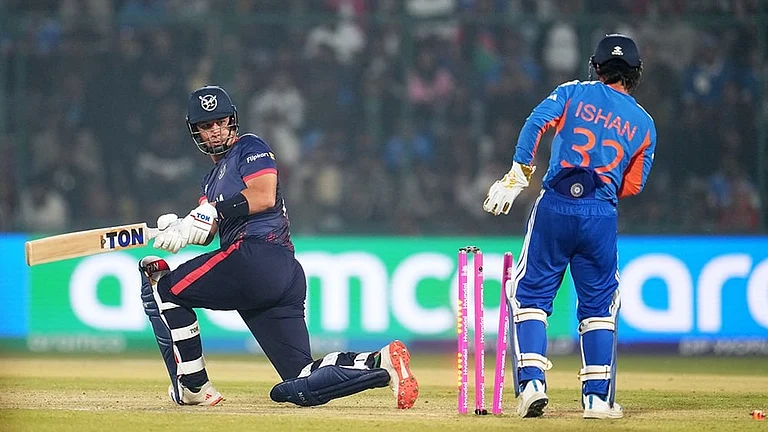A blast was on Friday reported at the Al Shifa Hospital in the Gaza Strip, the largest medical facility in the region, as Israeli military has encircled it and surrounding hospitals in the war against the Hamas.
Two weeks into its ground operation in northern Gaza, a watered-down version of the full-fledged invasion anticipated earlier, the Israeli military has encircled the Gaza City and has effectively sliced the Gaza into two northern and southern parts. After encircling the Gaza City, the Israeli forces have pressed into the city where heavy fighting with Hamas personnel have been reported.
The Friday's blast at the Al Shifa Hospital has been attributed to a single projectile. While the Hamas-run Gazan authorities have blamed the Israeli authorities, the Israeli military has so far not commented on the reported incident. They have reported one death and "several" injured.
A video shared and verified by The New York Times appears to show a projectile landing in the open area in the larger Al Shifa Hospital complex.
"Videos verified by The Times showed what appeared to be a projectile flying into the hospital’s courtyard and striking an area where displaced Gazans were resting overnight. The screams of people could be immediately heard. One man was filmed lying on the ground in pain, with his leg apparently mangled. The source of the blast, whether there were multiple strikes and the extent of the damage at Al Shifa were not immediately clear," reported The NYT.
Hamas-run health ministry's spokesperson Dr Al-Qidra told the paper that Israel had also surrounded two other hospitals in the area, the Rantisi and ِAl-Nasr hospitals. The paper said the claim could not be independently verified.
The Israeli government maintains that Hamas, a militant organisation and ruler of Gaza, uses tunnels and levels under the Al Shifa Hospital as its command and control centre. While the claim of Hamas using the hospital as a base has gained traction lately, it is not for the first time that such an assessment has been made public. As far as in 2009, within just two years of Hamas taking over Gaza, the Israeli security apparatus had concluded that several top leaders of the group were based in the underground levels of the hospital complex.
"During a cabinet meeting a week ago, Shin Bet chief Yuval Diskin said senior Hamas officials found refuge in the hospital basement because they know Israel would not target it, due to the patients in the upper floors. Palestinian sources told Haaretz that not all the senior Hamas leaders are hiding in one place," said a report in the Haaretz paper in 2009.
The report further said, "Rather, they have spread out, and some are constantly changing locations. Some of the bunkers they are using were linked by tunnels Hamas built in recent years."
In a related development, the Israeli military on Thursday said that its fighting Hamas personnel in what it called the "military quarter" of Gaza City near the Al Shifa Hospital, according to The Times of Israel. The Palestinians in the region also reported heavy fighting in the area.
Israel's War on Gaza began on October 7 when Hamas and allied groups attacked Israel and went on a rampage across southern part of the country under the cover of around 3,000 rockets that rained all over the country. The Israeli government says at least 1,600 were killed, around 6,900 were injured, and at least 140 were abducted and taken to Gaza as hostages. In response, Israel launched intense aerial and bombardment of Gaza to take down Hamas leaders and facilities as part of the long war to defeat Hamas and remove it from Gaza's leadership. While Hamas has been hit hard, widespread civilian casualties have been reported in Gaza, with the Hamas-run Gazan authorities saying over 11,000 have been killed, over 4,000 of whom are children. Moreover, around 1.5 million Palestinians are estimated to have been displaced internally in Gaza which is short of food, medicines, and fuel amid a land blockade.
The grave humanitarian crisis in Gaza has called for an immediate ceasefire and has diluted the international support for Israel in its war against Hamas as massive rallies frequently take place in the West against the Israeli war efforts. Israel has, however, rejected calls for ceasefires, but has so far accepted the US-led Western suggestions to reduce the invasion to a narrower, focussed ground operation, enable more humanitarian aid into Gaza, and institute daily pauses in attacks for humanitarian purposes.


























